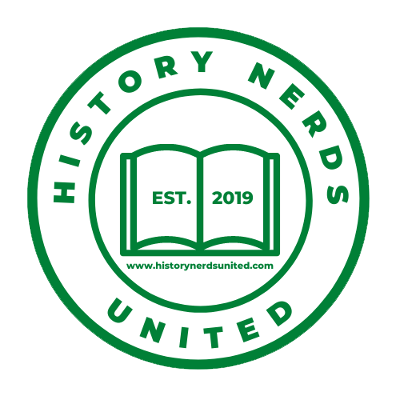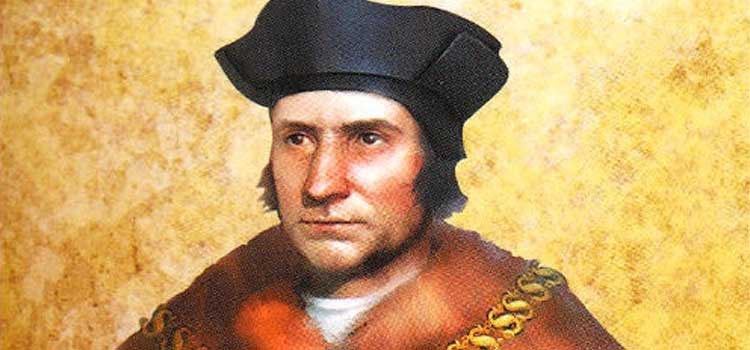Imagine being one of the great philosophers of your age. You serve a king, die a martyr’s death, and are revered by the Catholic Church.
However, your greatest contribution to the world is a book you wrote on a lark. And the title is used today to mean the exact opposite of the point you were trying to make.
Meet Saint Thomas More, the author of Utopia.
He was born in London in 1478. He came from a well to do family and received an excellent education. By all accounts, however, Thomas More was naturally one of the smartest people of his age. He was friends and acquaintances with many famous people including this guy named Henry. We will come back to him.
More was very religious. He almost became a monk and while he ultimately did not become one, he practiced what they preached. He was secretive about it, but he wore a hair shirt most of his life. Yes, a hair shirt is exactly what you think it is. More felt that suffering brought you closer to God. I need to shower right after a haircut because the little hairs annoy me. I was never meant to be a monk.
More was a lawyer by trade but just about everything else for fun. That guy, Henry, that I mentioned? He was Henry VIII, the one with all the wives. As you can imagine, a very Catholic More and a very stubborn, divorce-seeking Henry had their relationship fall apart in spectacular fashion.
Before all that went down, though, More did something most people recognize even if they know nothing about history. More was toying around with ideas with his buddy Erasmus (real name) and the idea for Utopia was born.
I tried to read it. I had no idea what was going on. The basic premise is a made up nation-state named Utopia. I’d try to explain more (pun intended!) but people much smarter than me still argue about what things mean in the book. Just know that when you say, “Utopia,” you have More to thank for it.
Oh, and what happened to More? Henry VIII had him executed. It wasn’t that simple, though. More was too smart for his captors and kept avoiding saying anything incriminating. He was a lawyer after all. Ultimately, perjured testimony was needed to convict him.
I’d also like to point out that he was amazingly funny. Here are quotes FROM HIS EXECUTION:
After moving his beard so it didn’t sit on the chopping block: “This hath not offended the king.” His meaning? He means his beard didn’t do anything wrong since he grew it after his conviction. Leave the beard alone!
On trying to climb the execution platform: “See me safe up: for in my coming down, I can shift for myself.” His meaning? Help me up the platform. My head will come down the platform by itself after.
As part of his most famous last words: “I die the king’s faithful servant, and God‘s first.” His meaning? F— you, Henry. According to me, anyway. He was much classier than I am.
For more:
https://en.wikipedia.org/wiki/Thomas_More
https://en.wikipedia.org/wiki/Erasmus
https://en.wikipedia.org/wiki/Utopia_(book)
https://en.wikiquote.org/wiki/Thomas_More
https://ivypanda.com/essays/thomas-more-and-king-henry-viii-their-relationship/


Leave a Reply
You must be logged in to post a comment.